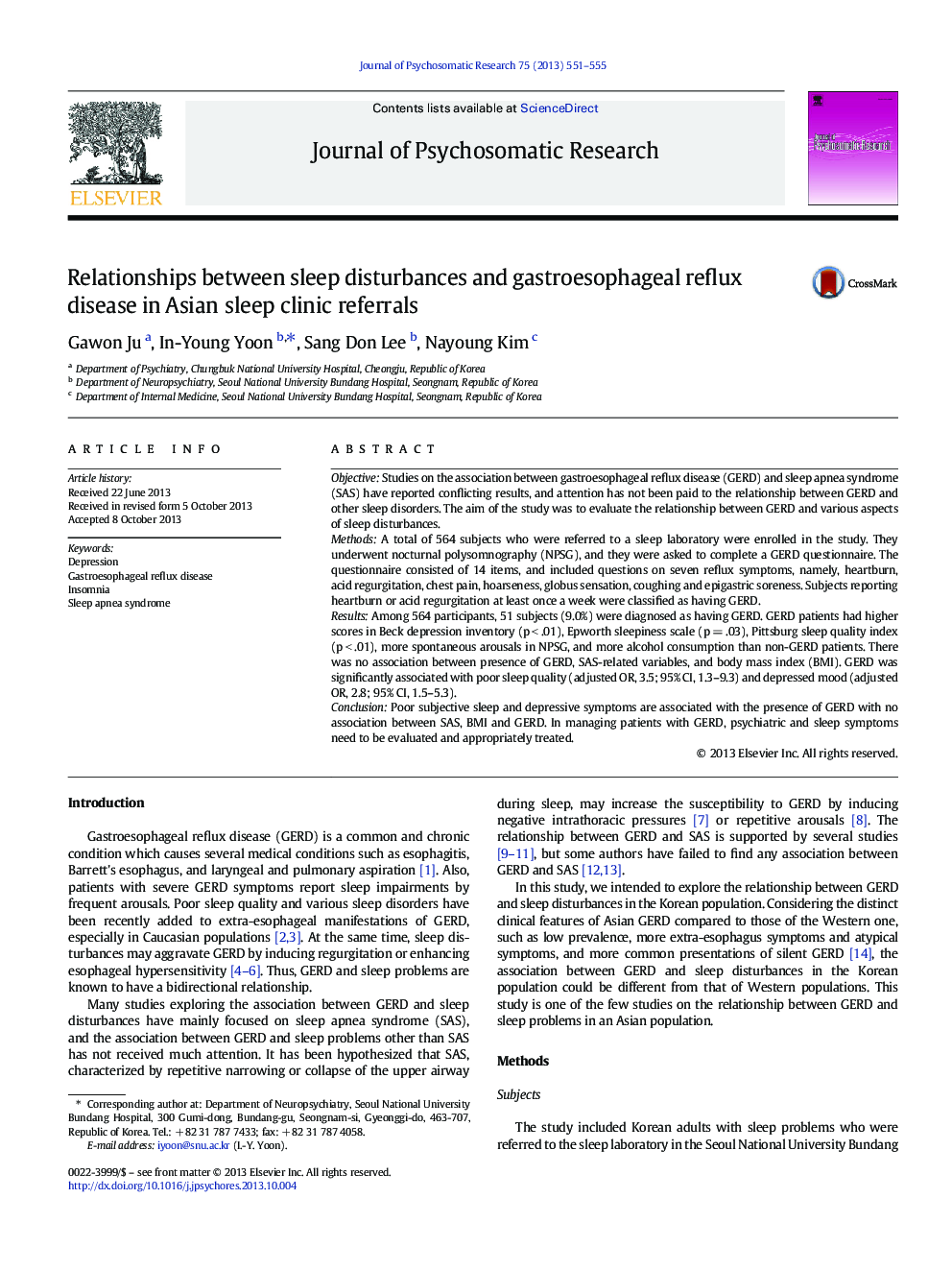| Article ID | Journal | Published Year | Pages | File Type |
|---|---|---|---|---|
| 949466 | Journal of Psychosomatic Research | 2013 | 5 Pages |
ObjectiveStudies on the association between gastroesophageal reflux disease (GERD) and sleep apnea syndrome (SAS) have reported conflicting results, and attention has not been paid to the relationship between GERD and other sleep disorders. The aim of the study was to evaluate the relationship between GERD and various aspects of sleep disturbances.MethodsA total of 564 subjects who were referred to a sleep laboratory were enrolled in the study. They underwent nocturnal polysomnography (NPSG), and they were asked to complete a GERD questionnaire. The questionnaire consisted of 14 items, and included questions on seven reflux symptoms, namely, heartburn, acid regurgitation, chest pain, hoarseness, globus sensation, coughing and epigastric soreness. Subjects reporting heartburn or acid regurgitation at least once a week were classified as having GERD.ResultsAmong 564 participants, 51 subjects (9.0%) were diagnosed as having GERD. GERD patients had higher scores in Beck depression inventory (p < .01), Epworth sleepiness scale (p = .03), Pittsburg sleep quality index (p < .01), more spontaneous arousals in NPSG, and more alcohol consumption than non-GERD patients. There was no association between presence of GERD, SAS-related variables, and body mass index (BMI). GERD was significantly associated with poor sleep quality (adjusted OR, 3.5; 95% CI, 1.3–9.3) and depressed mood (adjusted OR, 2.8; 95% CI, 1.5–5.3).ConclusionPoor subjective sleep and depressive symptoms are associated with the presence of GERD with no association between SAS, BMI and GERD. In managing patients with GERD, psychiatric and sleep symptoms need to be evaluated and appropriately treated.
